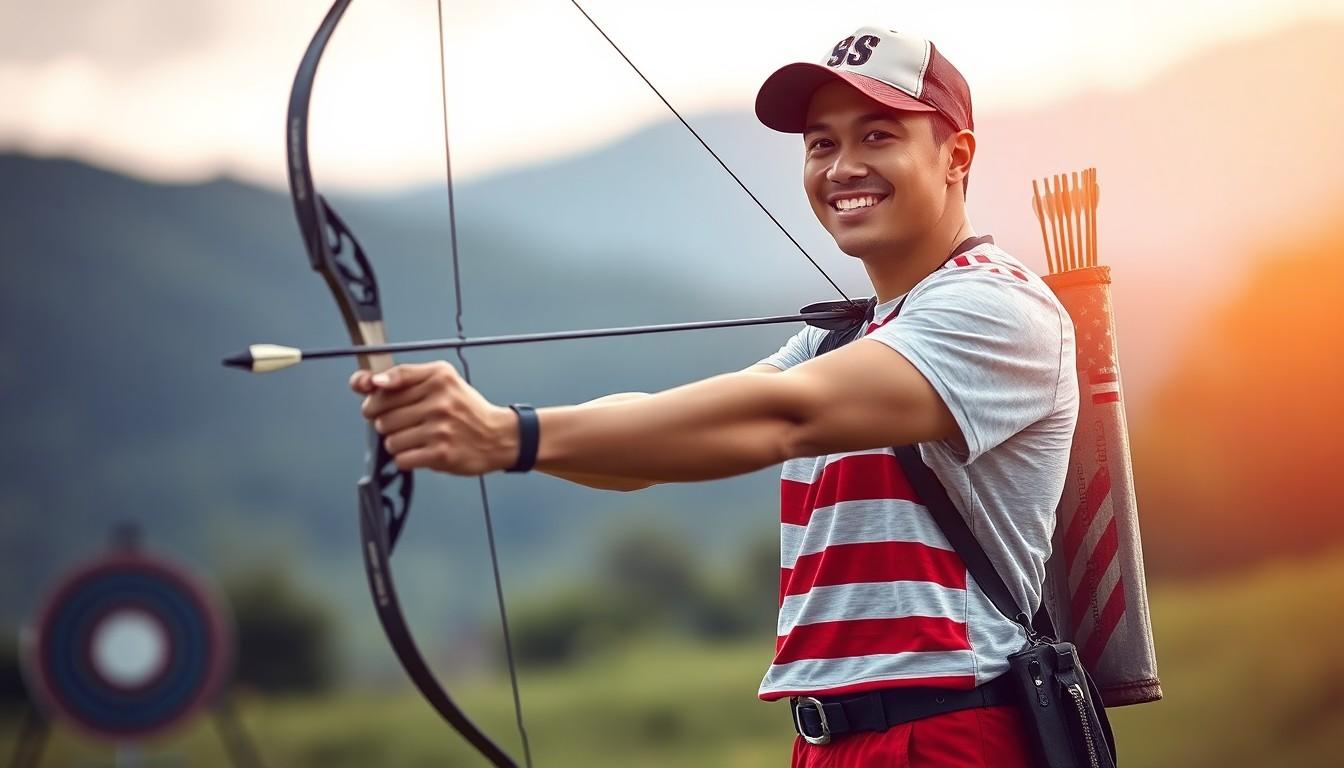Key Takeaways
- Variety of Olympic Sports: The Olympic Games feature over 30 sports, each with unique skills and physical demands, offering something for everyone.
- Criteria for Ease: Easiest Olympic sports are often defined by their physical demands and required skill level, making them more approachable for beginners.
- Popular Easy Sports: Archery, race walking, and table tennis are highlighted as accessible options due to their lower physical intensity and quicker learning curves.
- Benefits of Choosing Easier Sports: Engaging in less demanding sports enhances accessibility, reduces commitment levels, and promotes enjoyment, social interaction, and physical fitness.
- Skill Development Opportunities: Beginner-friendly sports facilitate skill acquisition, laying a foundation for potential future involvement in more challenging activities.
- Stress Relief and Well-being: Participation in light to moderate sports contributes to mental well-being, offering a fun outlet for relaxation and stress relief.
When it comes to the Olympics, the spotlight often shines on intense sports that require years of training and dedication. However, some athletes and spectators wonder which Olympic sport might be the easiest to pick up. This question sparks curiosity and debate, as perceptions of difficulty vary widely based on personal experience and skill level.
Exploring the easiest Olympic sport can reveal surprising insights about accessibility and enjoyment. Many people might think of sports that prioritize basic physical skills or minimal equipment. By diving into this topic, readers can discover which events might be more approachable for beginners and the factors that contribute to their perceived ease. Whether it’s about fun, fitness, or simply trying something new, understanding these sports can inspire anyone to get involved in the Olympic spirit.
Easiest Olympic Sport
Olympic sports encompass a diverse array of disciplines, each showcasing particular skills and athletic prowess. The Olympic Games feature over 30 sports, including individual and team events that range from swimming and athletics to gymnastics and team sports like basketball.
Sports within the Olympics often fall into categories: summer and winter sports. Summer sports, such as athletics and swimming, occur during the warmer months, while winter sports, like skiing and ice hockey, take place in colder conditions.
Each sport varies in rules, techniques, and required training. While some sports, like sprinting, demand explosive speed and conditioning, others, such as archery, emphasize precision and focus.
Accessibility to these sports also varies. For some events, like running or badminton, minimal equipment is necessary, making them more approachable for beginners. Other events, such as equestrian or fencing, require specialized equipment and skills that can take longer to master.
Participation in Olympic sports promotes physical fitness and fosters a sense of community through teamwork and competition. The spirit of the Olympics encourages individuals to explore different sports, enhancing enjoyment and encouraging a healthy lifestyle.
Criteria For Determining Easiest Olympic Sport

Determining the easiest Olympic sport involves evaluating various factors. The following criteria play a crucial role in making this assessment.
Physical Demands
Physical demands refer to the overall intensity and exertion levels in a sport. Sports that require minimal physical fitness, such as archery and curling, tend to be more approachable for beginners. These sports often allow participants to engage without extensive conditioning. Conversely, sports like rugby and gymnastics involve rigorous training and athleticism, making them less accessible for newcomers.
Skill Level Required
Skill level required assesses the technical proficiency needed to excel in a sport. Sports like shooting and table tennis necessitate a lower skill threshold, enabling newcomers to learn quickly. They focus on basic techniques that can be mastered with practice. In contrast, activities such as diving and figure skating demand advanced skills and years of practice, which can deter beginners from attempting them.
Popular Candidates For Easiest Olympic Sport
Several Olympic sports are considered easier for beginners due to their lower physical demands and skill acquisition requirements.
Archery
Archery offers a gentle introduction to competitive sports. Participants focus on strength, concentration, and precision, without the need for intensive physical conditioning. Basic equipment includes a bow and arrows, which are widely available. Learning proper techniques takes time, but individuals can quickly grasp the fundamentals, making it appealing for newcomers.
Race Walking
Race walking requires a unique technique and is less physically demanding than many other Olympic sports. Competitors must maintain a straight leg while the leading foot is in contact with the ground, making it more about form than speed. This emphasis allows new athletes to participate without extensive training. Minimal equipment, such as comfortable footwear, makes it accessible.
Table Tennis
Table tennis is a fast-paced sport that emphasizes hand-eye coordination and strategy over raw physical power. The game can be played at various skill levels, with simpler techniques allowing beginners to engage quickly. Its low-impact nature and accessibility foster a welcoming environment for new players, making table tennis a popular choice for those seeking an easy entry into Olympic sports.
Benefits Of Choosing An Easier Olympic Sport
Choosing an easier Olympic sport offers multiple advantages.
- Increased Accessibility: Engaging in less demanding sports like archery or race walking makes participation more feasible for individuals of all ages and fitness levels.
- Lower Commitment Levels: Sports with minimal physical requirements allow participants to engage without the extensive training regimens associated with more intense disciplines.
- Enhanced Enjoyment: Activities that emphasize fun and skill acquisition, such as table tennis, encourage a positive experience without overwhelming pressure to perform.
- Social Interaction: Easier sports often foster community through group activities and recreational leagues, building social connections and promoting teamwork.
- Physical Fitness: Even sports deemed “easier” contribute to overall physical fitness, helping participants improve coordination, flexibility, and cardiovascular health.
- Skill Development: Engaging in beginner-friendly sports allows individuals to develop fundamental skills, which can be beneficial if they later choose to pursue more challenging activities.
- Stress Relief: Light to moderate physical activity helps reduce stress and improve mental well-being, making these sports a suitable outlet for relaxation.
Choosing An Easier Olympic Sport
Choosing an easier Olympic sport can open doors to enjoyment and community engagement. With options like archery race walking and table tennis individuals can find activities that suit their skill levels and physical capabilities. These sports not only promote fitness but also foster social connections through teamwork and shared experiences.
Engaging in these beginner-friendly sports allows for a fun introduction to the Olympic spirit. It’s an opportunity to experience competition without the intense pressure of more demanding events. By exploring these accessible sports everyone can find a fulfilling way to participate in the rich world of the Olympics.
